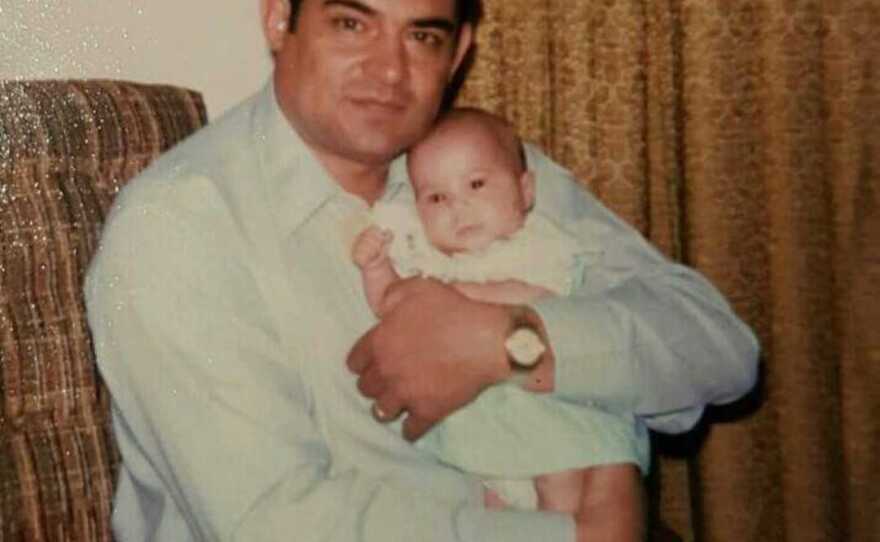Joanna Nunez'sfather, Joe Garcia, served two tours in Vietnam before retiring from the Army in the early 80s. Growing up in Fayetteville, she recalls her father was often distant and irritable, with dark mood swings that were hard to predict.As an adult, Nunezfound her calling counseling soldiers and their family members about mental health, substance abuse and post-traumatic stress disorder. In the middle of a counseling session with a military spouse, she had a breakthrough of her own.

"It just hit me, I don't know my dad prior to the war," said Nunez. "My dad is one of these guys. At 18 or 22, I bet he was fun. I bet he didn't yell at people. I bet he could sleep at night."
She wasn't sure how to ask him, but she knew she needed to know more about his experience living with PTSD. She invited him to share his memories, and they began meeting weekly to record his stories.
The process helped her better counsel soldiers and their family members. Even more profoundly, it changed the nature of herrelationship with her father.
"It made me understand why he'd been the way he'd been our wholechildhood, so I was instantly ableto forgive him," said Nunez.
Dealing with PTSD is an on-going process, she said, but she has seen her father make strides in recent years.
"Every time I talk to him on the phone he says 'I love you,' which is so interesting, because that never happened growing up."
Ft. Bragg Stories is a collaboration between the Fayetteville Observer and WUNC's American Homefront Project to commemorate a century of history at Fort Bragg through personal narratives. You can hear other stories in the series here. If you'd like to share your Fort Bragg story, you can send it here, or email fortbraggstories@wunc.org.












